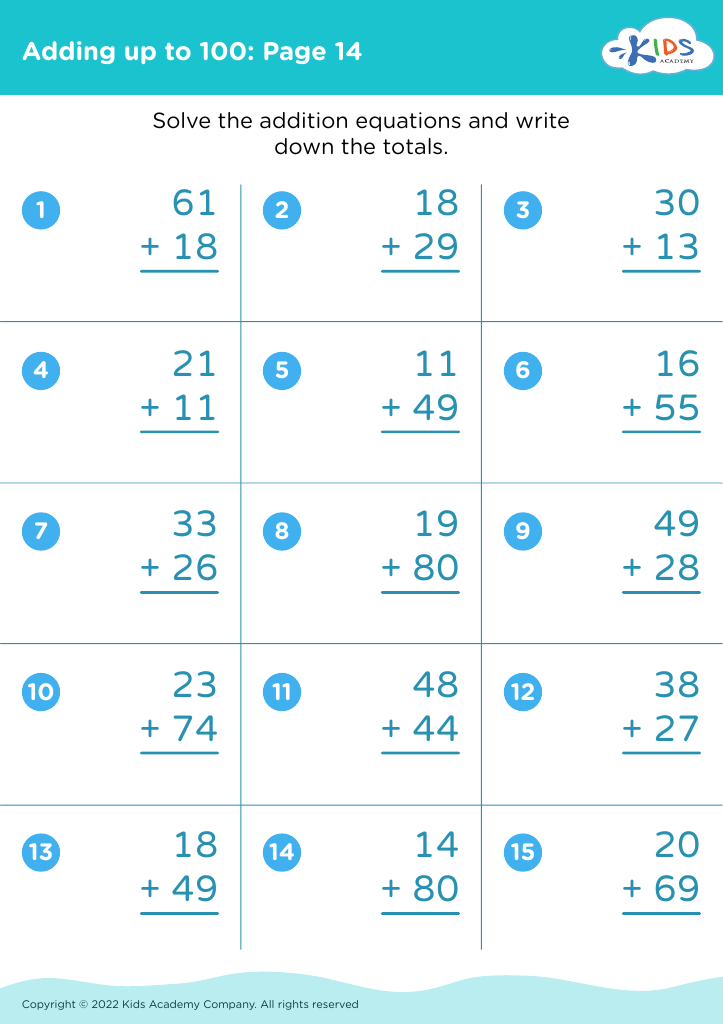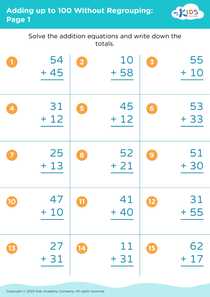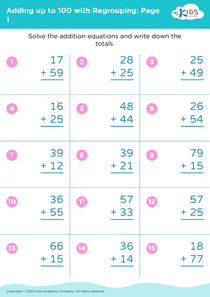Addition Practice Adding up to 100 Misc Worksheets for 8-Year-Olds
3 filtered results
-
From - To
Boost your child's math skills with our engaging Addition Practice worksheets designed specifically for 8-year-olds! These printable activities focus on adding numbers up to 100, providing a fun and interactive way to enhance addition mastery. Featuring a variety of problems, including word problems, number sentences, and visual aids, these worksheets cater to different learning styles. Perfect for classroom use or at-home practice, your child will build confidence and proficiency in addition, setting a strong foundation for future math success. Download our Addition Practice worksheets today and watch your child enjoy learning while sharpening their math abilities!
Parents and teachers should prioritize addition practice that sums up to 100 for 8-year-olds for several compelling reasons. First, mastering addition is fundamental to a child’s overall mathematical development. As children begin to tackle more complex concepts in mathematics, such as subtraction, multiplication, and division, a strong foundation in addition is essential, as these operations often build on one's ability to calculate sums efficiently.
Practicing addition up to 100 also enhances cognitive skills like problem-solving and critical thinking. It encourages children to approach problems conceptually, helping them understand the relationships between numbers better. Regular practice can increase their confidence in handling math-related tasks, reducing anxiety associated with math.
Furthermore, adding up to 100 often involves real-world applications. This skill will come in handy as children apply mathematical reasoning in everyday life—through activities like shopping, budgeting, or cooking. Additionally, engaging in structured addition practice fosters a sense of achievement, boosts motivation, and shows children the fun side of learning mathematics. Ultimately, a solid grasp of addition is not merely an academic requirement; it’s a crucial life skill that propels students toward success in future learning endeavors and everyday situations.

















